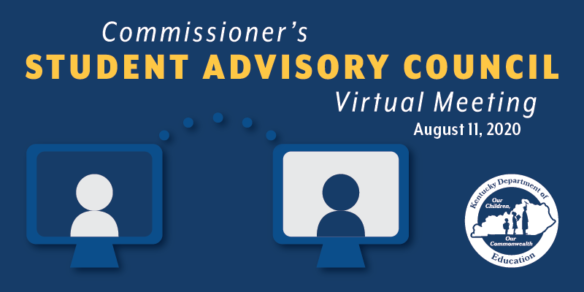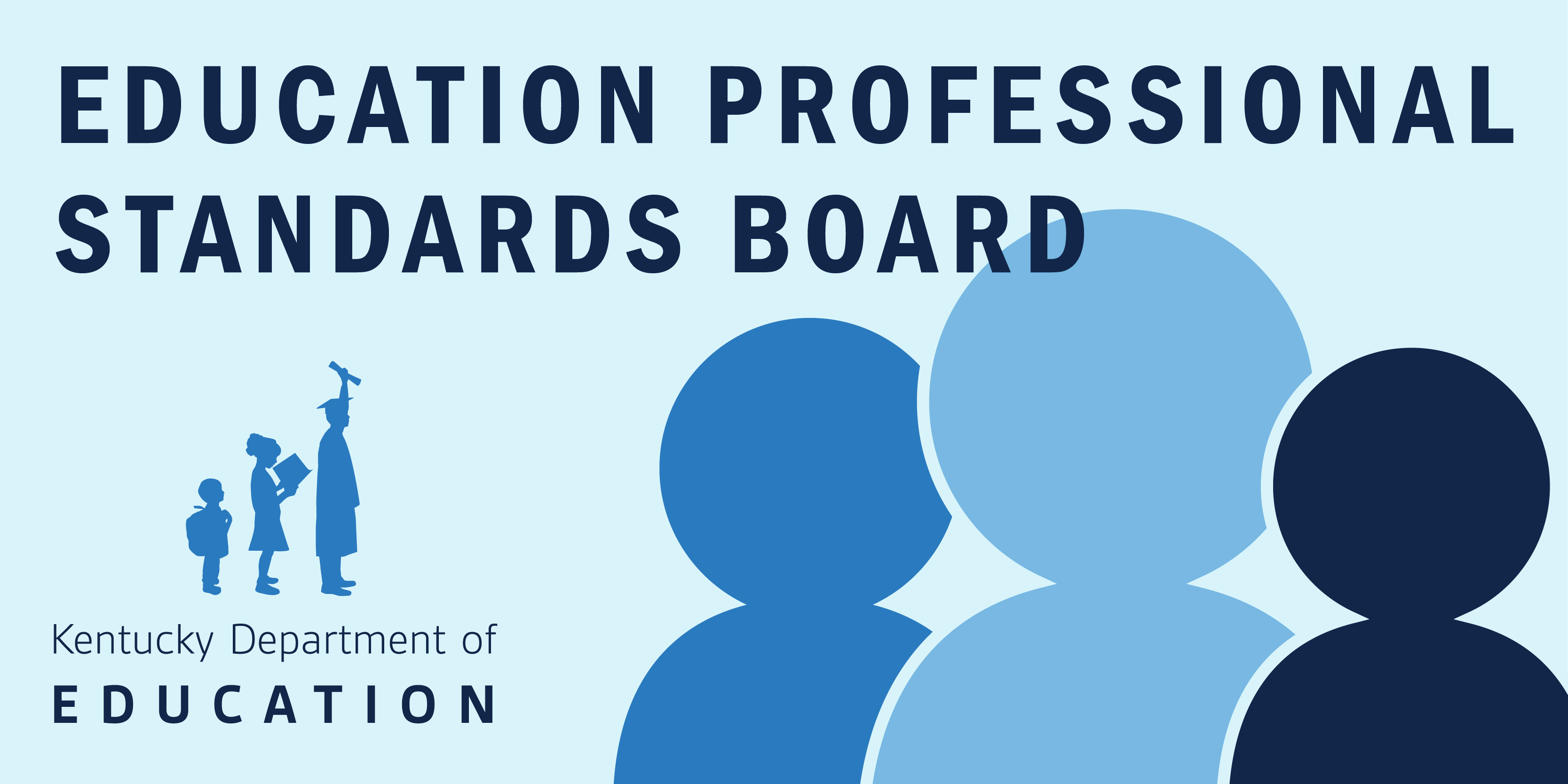
At its Aug. 11 virtual meeting, members of the Kentucky Department of Education’s Commissioner’s Student Advisory Council shared their ideas for helping students with their mental health when school starts for the 2020-2021 school year.
KRS 156.095 requires schools to provide suicide prevention information on an annual basis to all students in grades 6 through 12 either in person, by live streaming or via video recording by Sept. 15.
According to Blake Konny, a Safe Schools consultant with the Kentucky Department of Education’s Office of Continuous Improvement and Support, suicide is the second leading cause of death among the student-age population. Konny asked students how schools could go above and beyond to help them deal with mental health issues during the COVID-19 pandemic, a time when they have been isolated from their teachers and peers.
The advisory council members agreed that COVID-19 has created a different kind of stress and trauma for them. Loren Little, a sophomore at Clinton County High School, said building coping skills and having access to resources should be the main focus as students need people to talk to when they are having a tough time mentally.
“Our schools have almost no resources for suicide prevention, so I feel like we need to acquire a few resources for students whose mental health has deteriorated due to the coronavirus,” Little said.
Konny said the recommended approach for providing suicide prevention training has shifted away from teaching students to identify warning signs and risk factors in themselves and peers to the way the topic is approached in situations where there is active trauma or crisis. During active trauma events, such as the COVID-19 pandemic, recommended training focuses on help-seeking, building coping skills, acknowledging grief and loss and providing access to resources.
Several students agreed that overall discussions around mental health would move their schools in a better direction.
“Often conversation sparks after tragedy occurs,” said Caleb Bates, a senior from Breathitt County High School. “I’d like to see my school develop a better sense of community and network to help when issues do arise.”
Gracie Smith, a sophomore at the Kentucky School for the Blind, acknowledged that more resources are needed for her school.
“I also want to encourage talking to each other and normalizing conversations about mental health,” she said. “One thing that happens at my school a lot is that sometimes students feel more comfortable talking with their peers before talking to an adult, but we have a lot of situations where adults will push themselves into the middle. It does more harm than good when that happens.”
Career and Technical Education
Tom Thompson, director of KDE’s Division of Technical Schools and Continuous Improvement, said career and technical education (CTE) classes face particular challenges when schools are using virtual learning. He discussed possible ways that the hands-on, lab-based portions of CTE classes could take place during the upcoming weeks.
“You can’t replace planting actual plants in a greenhouse, but you can have students plant things at home and practice in a virtual setting,” Thompson said. “We want to make sure we are giving students all the theory that is needed virtually to best supplement the hands-on training being missed.”
Viviana Heredia, a senior at Ryle High School in Boone County, voiced her concern about sharing lab equipment like goggles. Heredia, who is taking courses in the biomedical science pathway, suggested having individual equipment reserved for each student as a way of reducing the possible spread of COVID-19.
“It’s difficult to learn a trade without being in a clean environment,” added Bates. “It’s important to find a balance between health and safety. Given that learning these skills are necessary to work in a field, it’s difficult to learn through online simulations.”
Face Mask Requirements
Advisory council members debated the requirement to wear face masks during a discussion of the Healthy at School flagship guidance document. Dr. Connie White, deputy commissioner of the Kentucky Department for Public Health, said students should wear two-ply masks while in school, unless restricted from doing so by a health condition.
When asked by a student how masking would be enforced, Associate Commissioner Kelly Foster of KDE’s Office of Continuous Improvement and Support, said KDE has asked school and district administrators to focus on climate and culture when it comes to masks. A mask should not be a disciplinary action. Each local SBDM could make a mask be part of the dress code, but the focus should be on climate, culture and safety.
“Students who don’t have masks will be provided masks,” Foster said. “Local districts will have masks available for students.”
Council members also heard a presentation on new guidance for library media centers. James Allen of KDE’s Office of Education Technology ensured students that access to high-quality resources should be available at all public school libraries.
According to Allen, school library media specialists are being challenged to think creatively, such as by distributing electronic versions of books, using online catalogs to share book availability and providing curbside pickup for library products.
The council will meet again on Sept. 15.
MORE INFO …
- Commissioner’s Student Advisory Council
- Kentucky Department for Public Health’s COVID-19 webpage
- KDE’s COVID-19 webpage
- KDE’s COVID-19 Reopening Guidance webpage
- Kentucky COVID-19 Hotline (800) 722-5725



Leave A Comment